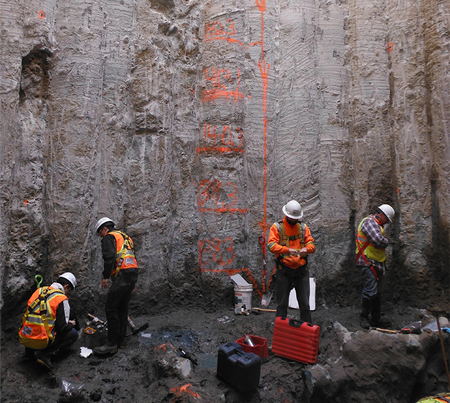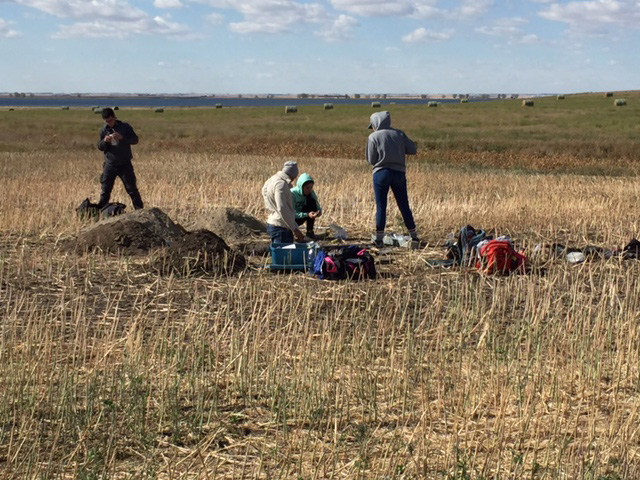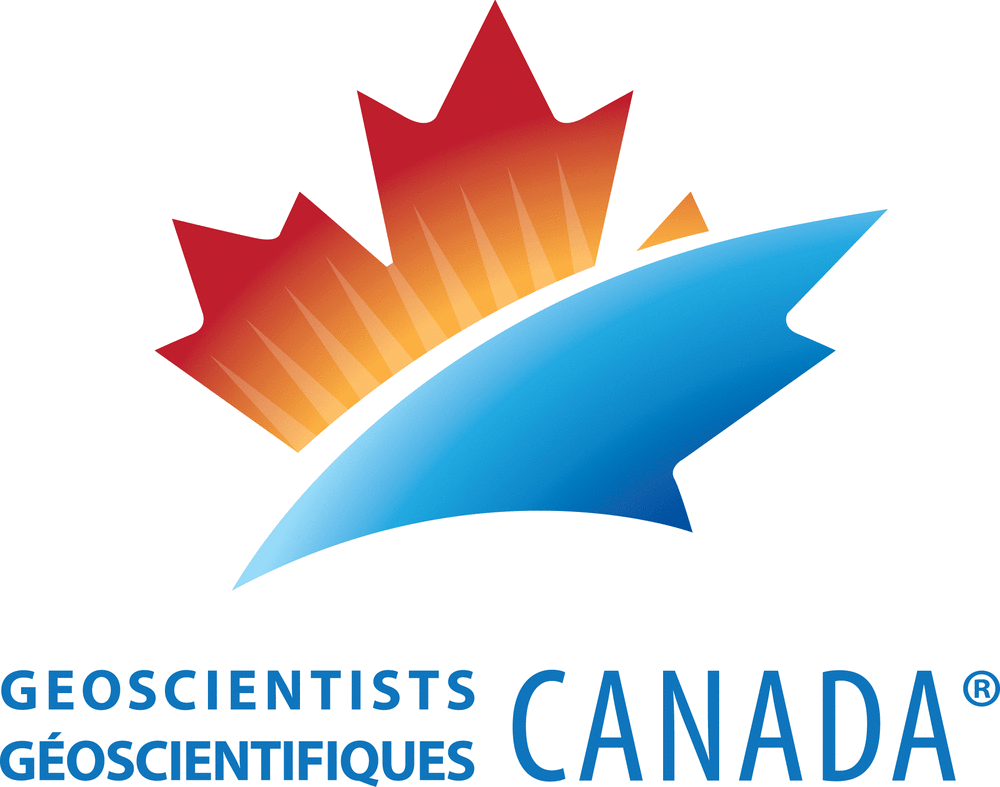Getting your Licence

In Canada, you need to apply and become a P.Geo. (Professional Geoscientist) - in other words, get your geoscientist licence - in the province or territory in which you work. Those working in several jurisdictions may require multiple licences.
If you are a geoscientist immigrating to Canada to join our workforce (or if you are an internationally-mobile professional whose activities involve you working in Canada), you will need to get a P.Geo. licence in the appropriate province or territory before you are allowed to practice.
All P.Geo.’s must successfully complete the admission procedure at one of the 10 professional associations (regulators). Each regulator has its own application process and may have slightly different admission requirements. It is very important that as soon as you know the province or territory in which you intend to settle or work, you contact that regulator directly to confirm specific local requirements and start the formal application process. See the Regulator Map for more information.
All regulators are able to process applications from individuals who received their geoscience education and/or have geoscience work experience from different countries. They are also prepared to consider applications from geoscientists at different stages of their careers.
This section of the website provides you with further information about applying for a P.Geo. licence.
Geoscientist Licensure in Canada
Geoscientists are licensed professionals in Canada in the same way architects, physicians, lawyers, foresters and engineers are licensed. Canadians expect their lawyer, or the medical surgeon who operates on them, to be competent, licensed, and publicly accountable. Similarly, Canadians expect all geoscientists to act in an ethical manner and be responsible, competent and publicly accountable.
Part of the motivation to regulate the profession of geoscience across Canada came in as a result of the Bre-X gold mining fraud and the Walkerton groundwater contamination incident – each of which occurred about 20 years ago. Both are examples of how self-regulation and improved oversight could have provided greater protection of the public.
As P.Geo.s we are all subject to a Code of Ethics. We must practice professionally, and can only work within our areas of expertise. Any member of the public or other P.Geo. can make a complaint about the work or behaviour of a P.Geo.
When you become a P.Geo., you send a clear signal to your colleagues, peers, employers, others in your profession – and most importantly to the public as a whole – that you are committed to the professional practice of geoscience in Canada.
Many P.Geo.s in Canada are registered with more than one regulator because we must register in each province or territory in which we work. Once you receive your P.Geo. from one regulator in Canada, transferring registration to another province or territory, or obtaining additional licenses, is a streamlined process that should only take a few days.
PROVINCIAL AND TERRITORIAL REGULATORS
- Engineers and Geoscientists British Columbia
- Association of Professional Engineers and Geoscientists of Alberta
- Association of Professional Engineers and Geoscientists of Saskatchewan
- Engineers Geoscientists Manitoba
- Professional Geoscientists Ontario
- Engineers and Geoscientists New Brunswick
- Geoscientists Nova Scotia
- Professional Engineers and Geoscientists Newfoundland and Labrador
- Northwest Territories and Nunavut Association of Professional Engineers and Geoscientists
- Ordre des Géologues du Québec
P.Geo. Requirements
Typical requirements for becoming a P.Geo. in Canada are:
- Bachelor of Science (B.Sc) degree in geoscience.
- Supervised geoscience work experience - 29 competencies/48 months.
- Good character, reputation and conduct.
- Proficiency in the language of business in the province or territory of practice.
- Knowledge of professional practice issues, including law and ethics.
DOCUMENTS YOU WILL NEED!
Typical documentation you will need to provide as part of the assessment process includes:
- A completed application form.
- Academic transcripts.
- Work experience record.
- Three professional references.
- Official course descriptions.
Academic Training
Geoscientist academic training requirements ( also referred to as “geoscience knowledge” requirements) - are based on a typical Canadian university Bachelor of Science or Baccalaureate Degree (B.Sc) in geoscience. At most Canadian universities, a geoscience degree is four years long and includes 40, one-semester (minimum12 weeks’ duration) courses or their equivalent.
In a typical Canadian geoscience degree program, 30 courses are in science and the rest are non-science. Of the 30 science courses, about 20 are required in geoscience and 10 in other sciences, including mathematics, physics, and chemistry.
Typically a B.Sc degree in geoscience is in one of three practice areas or streams:
- Geology.
- Environmental Geoscience.
- Geophysics.
The 30 science courses required as academic training to become a P. Geo. in Canada are set out using the following 5 groupings:
- Foundation Science (formally referred to as Compulsory Foundation Science).
- Additional Science (formally referred to as Additional Foundation Science).
- Foundation Geoscience (formally referred to as Compulsory Foundation Geoscience).
- Additional Geoscience (formally referred to as Additional Foundation Geoscience).
- Other Geoscience/Science.

Work Experience
As geoscience graduates, we all need supervised experience working in geoscience after completing our undergraduate degree to obtain all the necessary capabilities to work independently. We must have worked in the capacity of a geoscientist both in enough depth and across sufficient areas to become aware of all the responsibilities associated with practising our profession. As well we need to be able to recognize our own limitations as working scientists.
To obtain a P.Geo. in Canada you must have at least 48 months of supervised experience working as a geoscientist. Your experience does not have to be obtained working with a single organization or in a single role. As part of your experience, you must also specifically demonstrate that you possess the necessary professional competencies to work independently in a Canadian context; this is what is often referred to as “Canadian” experience. Read more on Canadian experience requirements in the section below.
Geoscience experience gained during seasonal or part-time work while completing the latter part of your undergraduate degree, or through completing a thesis-based master’s degree and completing a PhD may all qualify towards your work experience.
Details of how experience requirements are traditionally satisfied are set out in the Geoscience Knowledge and Experience Requirements for Professional Registration in Canada.
A new approach to evaluating experience requirements based on demonstrating specified competencies is being introduced; it is being used to assess applicants by some of the regulators.
For the purposes of self-assessing your work experience at this site, you will be asked to rank your geoscience work experience in relation to a range of specific competencies. The required competencies are grouped under these four broad headings:
- Professional
- Scientific Method
- Geoscience Practice
- Complementary

Language Proficiency
If English or French is not your first language or you did not receive your undergraduate or graduate degree in geoscience in either English or French, you may have to complete a language proficiency test.
French is the language of business in Quebec. New Brunswick is bilingual and both French and English are used in business. In all other provinces and territories in Canada, English is the primary language of business.
A number of different language proficiency tests are recognized by our regulators.
COMMONLY ACCEPTED LANGUAGE TESTS:
Canadian Language Benchmarks (CLB)
CLB is a system to describe proficiency levels in English. There are 12 benchmark levels; normally benchmark 8 in reading, writing, listening and speaking is required. There is a Canadian Level Benchmark Placement Test (CLBPT), but benchmark levels are usually determined by taking either the CELPIP, IELTS or TOEFL test. More about CLB here. You can try an online sample test here.
International English Language Testing System (IELTS): A score of 6 or higher in each module required. More here about IELTS here.
Canadian English Language Proficiency Index Program (CELPIP): A score of level 8 or higher is typically required in the CELPIP General Test.More about CELPIP including their online sample test here.
Test of English as a Foreign Language (TOEFL)
Test of English as a Foreign Language (TOEFL) - standardized test to measure the English language ability of non-native speakers wishing to enroll in English-speaking universities and professional institutions. A minimum score 100 required. More information on the TOEFL test can be found here.

As the language of business and required proficiency varies by provinces and territories, it is important that you consider where you expect you will be practising as a geoscientist and that you familiarize yourself with local language requirements. For more specific information contact the appropriate regulator directly – follow links on the Regulator Map.
If it is necessary you take a language proficiency test, you will have to pay a fee. Basic costs for commonly accepted language tests range from $200-$300 CAD per attempt. More information on expenses typically associated with the licensure process can be found by visiting the cost calculator.
Document requirements
The regulator you apply to for your P.Geo. will require full documentation about your academic training, your geoscience work experience and at least three references. Depending on your circumstances, other documents, such as degree certificates, language proficiency test scores or individual university course descriptions may also be requested.
ACADEMIC TRANSCRIPTS
You will be required to arrange with your university (or universities) to send a full academic transcript of the courses you completed to the regulator in the province or territory in which you are applying for a license.
GEOSCIENCE WORK EXPERIENCE RECORD
As evidence of acceptable work experience, you may be required to complete and submit a Geoscience Work Experience Record - sometimes referred to as a Log Book. Alternatively you may be required to submit work experience and competency specifics online to enable a competency-based assessment of your experience.
PROFESSIONAL REFERENCES
You will need to arrange usually at least three professional references (i.e. someone that you have worked for in the past). References are typically set out in the form of a questionnaire that is either completed and submitted directly by each referee or completed by your referees online. The purpose of these references is to externally validate your information and to allow independent support for your application. Each reference must be completed by a different geoscientist who is familiar with your work as a geoscientist. In some circumstances, an engineer may qualify to give a reference, provided they are competent to practice geoscience and they are familiar with your work. Referees are known as validators in the competency-based assessment.
Third-party Assessments
Regulators of professions in Canada often use third-party assessment agencies to check degree certificates and academic transcripts from non-Canadian academic institutions. They do this for two reasons:
- Authenticity of documents - to ensure that a degree certificate or academic transcript is real (i.e. that it was issued for the person named and that it was issued by that institution) and to check that the issuing institution is genuine.
- Educational evaluations - to provide a comparison of documented education against known benchmarks. This can be a general evaluation at degree-level, or it can be an individual course-by-course evaluation.
Typical third-party assessment agencies used in Canada are either not-for-profit entities or government-funded bodies. They specialize in the authentication and comparison of degree documents and programs from different countries all over the world. In many cases, the Canadian agencies are either part of a larger global organization or they network closely with counterpart academic assessment agencies in other countries.
If you obtained your education in geoscience outside Canada, you may be asked by the regulator to have your academic transcripts sent out for third-party assessment. Alternatively, the regulator may initiate an assessment by sending your transcripts out for assessment. Either way, getting and paying for a third-party assessment is the responsibility of the applicant.
After completing a third-party assessment, the agency will send its report to you and it will send a copy directly to the regulator.
Here you can find more information on the major costs typically associated with applying for licensure.
THIRD-PARTY ASSESSMENT AGENCIES
- World Education Services (WES)
- International Credential Assessment Service of Canada (ICAS)
- International Qualifications Assessment Service (IQAS)
- International Credential Evaluation Service (ICES)
Other credential assessment agencies are listed here and here
"Canadian" Experience

As part of your supervised geoscience experience, you must be able to specifically demonstrate that you have all locally necessary competencies to work independently in a Canadian context. This is usually obtained either by working in Canada or in similar practice environments. This requirement addresses the need for familiarity with ethics, culture, codes of conduct, laws/regulations, geological terrain and climate of Canada in order to practice professionally in a manner that is safe to the public, colleagues, and the practitioner
Typically, “Canadian” experience will need to comprise at least 12 months out of the overall 48 months of required geoscience work experience.
Supervision: Most regulators require that your Canadian experience is obtained under the guidance and supervision of a geoscientist who is a P.Geo. or equivalent, and who is specialized in your geoscience practice area. Depending on your work, an engineer may also be an acceptable supervisor.
Your supervisors are important as these are the people you rely on for the references needed to complete your P.Geo. application.
While regulators typically expect each experience supervisor to be a Canadian P.Geo. (or on occasion a P.Eng), they recognize that experience obtained outside Canada will likely have been supervised either by professional geoscientists registered in other countries or by geoscientists who are not professionally registered at all.
For specific information on experience supervision and acceptable references you should contact the appropriate regulator.
The Professional Practice Exam
The geoscience regulatory bodies in Canada require all P.Geo. applicants to sit and pass what is commonly referred to as the Professional Practice Exam (PPE). This is not a technical exam about geoscience; it is a special exam about professional practice in Canada focused on law, ethics and professionalism as they relate to our work as geoscientists.
The PPE takes 3 to 3.5 hours to complete. It is a written test with a multiple-choice and often a short essay section.
The PPE can be taken at scheduled sittings arranged by each of the regulators at different locations across Canada, once every three months. The exam is also now offered by some regulators on-demand on-line.
The PPE format varies slightly between provinces and territories. Some regulators also require you attend an ethics seminar or certify you have watched a specified webinar on ethics, in addition to completing the PPE.
Approved textbooks and recommended study material are available so you can prepare for this exam. The primary textbook used for the PPE is Canadian Professional Engineering and Geoscience - Practice and Ethics (this is an external link) by Andrews, Shaw and McFee (2019), published by Nelson Education.
There are costs associated with preparing for and taking the PPE exam. Depending on the regulator, exam costs range from $230-$325. The text book usually costs $150. Pre-exam study seminars, where required, generally cost an additional $290.

